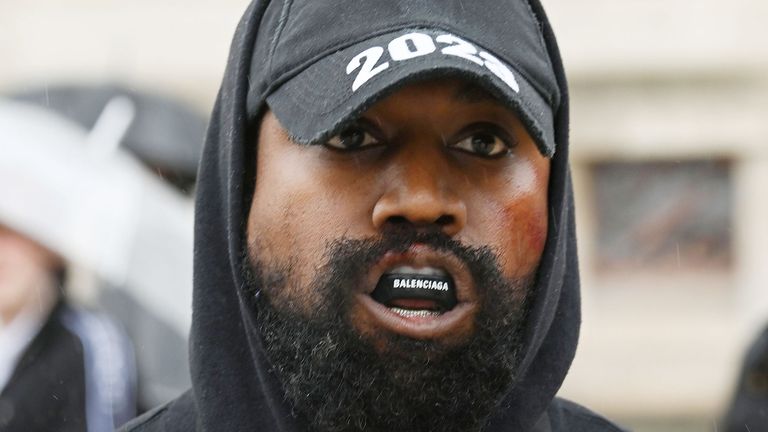In recent years, the phenomenon of “cancel culture” has gained significant attention and sparked widespread debates. Cancel culture refers to the practice of publicly calling out individuals and organisations for their alleged offensive actions or statements, with the intention of holding them accountable and often demanding their societal exclusion. However, critics argue that cancel culture often lacks nuance and fairness, leading to unjust consequences for individuals who may be falsely accused. In this day and age it is very easy for the mainstream media to ‘weaponise’ cancel culture and use it to target individuals who have become too powerful.

This essay aims to explore the issues and injustices associated with cancel culture, as well as analyse the dynamic nature of the “woke” agenda.
The Evolution of Cancel Culture
Cancel culture, as a concept, has evolved alongside the rise of social media platforms and their influence on public discourse. With the ease of sharing opinions and mobilising online communities, individuals now possess a powerful tool to express their grievances and hold people accountable. This democratisation of public discourse has undoubtedly brought about positive changes, allowing marginalised voices to be heard and fostering a greater sense of social consciousness. However, it has also created an environment where public figures, regardless of their intent or context, can be swiftly vilified without proper investigation or due process.
The Issues of Cancel Culture
1. Lack of Due Process:
One of the primary concerns surrounding cancel culture is the absence of due process. Accusations, often made through social media, can lead to immediate consequences, such as losing employment or facing widespread public condemnation, without any thorough investigation or consideration of context. This lack of due process undermines the principles of fairness and justice.
2. Mob Mentality and Online Harassment:
Cancel culture is often fueled by online mobs that relentlessly attack the accused. This mob mentality can lead to substantial emotional distress, mental health issues, and even physical harm for the individuals being targeted. Moreover, the anonymity provided by the internet can embolden individuals to engage in online harassment and threats, leading to a toxic online environment.
3. Suppression of Free Speech:
Cancel culture has the potential to stifle free speech and discourage open dialogue. When individuals fear backlash for expressing their opinions, they may self-censor or refrain from engaging in meaningful discussions. This can hinder intellectual growth, hinder the exchange of ideas, and undermine the principles of a healthy democracy.
4. Lack of Context and Nuance:
Cancel culture often fails to consider the context and intent behind someone’s words or actions. It reduces complex issues into oversimplified narratives, disregarding the possibility of growth, education, and redemption. This lack of nuance can lead to disproportionate consequences for individuals who may have made a mistake or expressed an unpopular opinion.
The ‘Woke’ Agenda and its Dynamics

The ‘woke’ agenda, often associated with cancel culture, refers to a set of beliefs and ideologies that emphasise social justice, inclusivity, and the dismantling of systemic oppression. While the intentions behind this movement are rooted in the pursuit of equality and fairness, it is crucial to acknowledge the complexities and potential pitfalls that arise when these ideologies are taken to extreme measures.
1. Overreliance on Identity Politics:
The ‘woke’ agenda places significant emphasis on identity politics, often defining individuals solely by their race, gender, or other protected characteristics. While recognising and addressing systemic inequalities is crucial, reducing the complexities of human identity to a single factor can lead to the exclusion of individual experiences and hinder genuine understanding and empathy.
2. The Purity Spiral:
The ‘woke’ agenda, in its extreme form, can lead to a phenomenon known as the “purity spiral.” This refers to a situation where individuals and groups continuously strive to outdo each other in demonstrating their commitment to progressive values. This can result in a toxic environment where minor missteps or differences in opinion are met with harsh criticism and ostracisation. The purity spiral undermines the notion of a diverse and inclusive movement, as it discourages open dialogue and promotes a culture of fear.
3. Lack of Forgiveness and Redemption:
Cancel culture, often influenced by the ‘woke’ agenda, tends to overlook the potential for growth, education, and redemption. It disregards the notion that individuals can learn from their mistakes, evolve their perspectives, and contribute positively to society. Instead, it perpetuates a culture of permanent punishment and exclusion, denying individuals the opportunity to make amends and reintegrate into the community.
4. Divisiveness and Polarisation:
Cancel culture and the ‘woke’ agenda can contribute to the increasing polarization of society, as they tend to create an “us vs. them” mentality. The focus on calling out and canceling individuals who hold different opinions or have made past mistakes can further deepen societal divisions. Instead of fostering understanding and dialogue, cancel culture often reinforces echo chambers and reinforces preexisting biases.
Cancel culture, with its swift and often unforgiving approach, raises important concerns about fairness, due process, and free speech. While the pursuit of social justice and accountability is essential, it is equally crucial to ensure that the process allows for nuance, context, and the potential for growth and redemption.
The ‘woke’ agenda, while rooted in noble intentions, can sometimes lead to unintended consequences such as identity reductionism, purity spirals, and the absence of forgiveness and redemption. To create a more inclusive and just society, it is crucial to strike a balance between holding individuals accountable for their actions and providing opportunities for education, growth, and reconciliation.
Ultimately, addressing the issues and injustices of cancel culture and the ‘woke’ agenda requires fostering a culture of empathy, understanding, and open dialogue. By encouraging nuanced discussions, promoting education and empathy, and emphasising the importance of due process, we can move toward a society that values accountability without sacrificing fairness and individual rights.
Subscribe to FIB’s Weekly Breaking News Report for your weekly dose of music, fashion and pop culture news!







